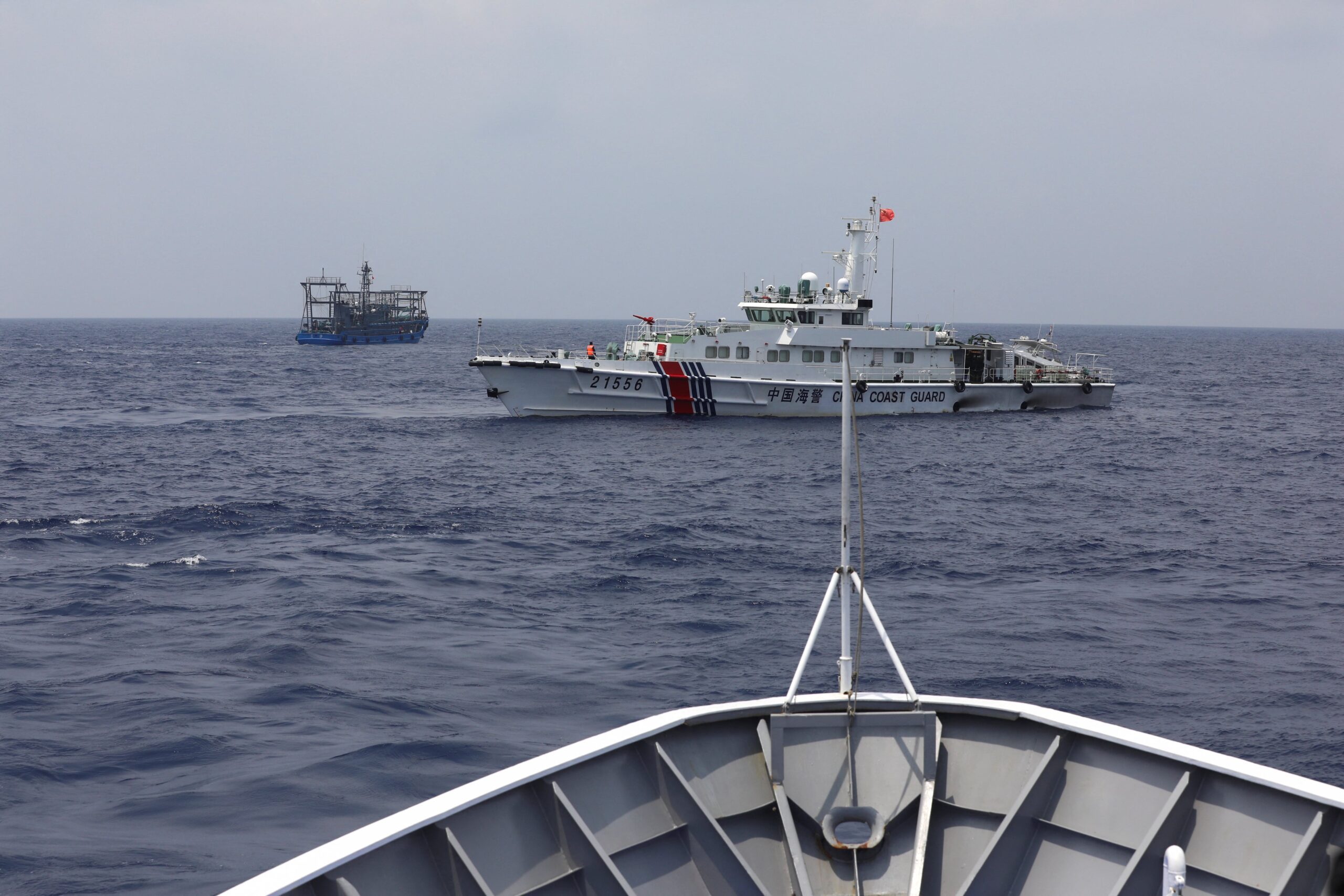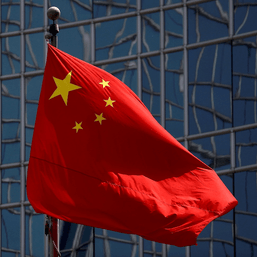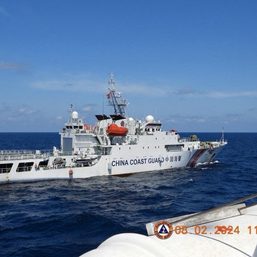SUMMARY
This is AI generated summarization, which may have errors. For context, always refer to the full article.

MANILA, Philippines – The blocking maneuvers of a Chinese Coast Guard vessel that led to its collision with a Philippine boat in the West Philippine Sea on Sunday morning, October 22, sparked international outcry, with numerous countries in the West – including the United States – criticizing Beijing’s actions.

“The United States condemns the People’s Republic of China’s latest disruption of a legal Philippine resupply mission to Ayungin Shoal, putting the lives of Filipino service members at risk. We stand with our friends, partners, and allies in protecting Philippine sovereignty and in support of a free and open Indo-Pacific,” US Ambassador to the Philippines MaryKay Carlson said later on Sunday.
“These incidents, their repetition and intensification are dangerous and very disturbing,” European Union Ambassador to the Philippines Luc Véron added. “We join the Philippines in its call for the full observance of international law in the South China Sea.”
The Canadian Embassy in the Philippines’ statement was more pointed, describing China’s actions as “unjustified” and “incompatible” with its obligations to comply with the United Nations Convention on the Law of the Sea (UNCLOS).
“Continuing acts of intimidation and coercion undermine safety, stability, and security across the region, and increase the risk of miscalculation,” it said.
German Ambassador to the Philippines Andreas Michael Pfaffernoschke also expressed concern about the “recent confrontations” involving Chinese vessels in the exclusive economic zone of the Philippines.
“Germany calls on all parties to act in accordance with UNCLOS rules and to respect the 2016 arbitral award,” he said, referring to the landmark case won by the Philippines seven years ago, invalidating Beijing’s all-encompassing claims in the South China Sea.
The Japanese embassy in Manila also called for the recognition of the arbitral award, adding that it “strongly opposes any unilateral attempts to change the status quo by force or coercion.”
Australian ambassador to the Philippines Hae Kyong Yu called for for peace, stability and respect for UNCLOS.
In a later statement early on October 23 (Manila time), the US State Department said it stood with the Philippines and criticized China for “[violating] international law by intentionally interfering with the Philippine vessels’ exercise of high seas freedom of navigation.”
“The unsafe maneuvers on October 22 and the PRC water cannoning of a Philippines’ vessel on August 5 are the latest examples of provocative PRC measures in the South China Sea to enforce its expansive and unlawful maritime claims, reflecting disregard for other states lawfully operating in the region,” the State Department added.
The US also “reaffirmed” that the Mutual Defense Treaty between the two treaty-allies “extends to armed attacks on Philippine armed forces, public vessels, and aircraft – including those of its Coast Guard – anywhere in the South China Sea.”
The New Zealand Embassy, meanwhile, said in a post on X that it was “deeply concerned” over the actions against the Philippines in its own exclusive economic zone, “with physical contact between vessels heightening risk to safety and undermining regional stability.”

What happened
Philippine authorities said the boat Unaiza May 2 (UM2) was on a resupply mission to BRP Sierra Madre, a warship used as an outpost on Ayungin Shoal, when a Chinese Coast Guard vessel’s “dangerous blocking maneuvers” resulted in the collision past 6 am on Sunday.
No injuries were recorded, but the National Task Force for the West Philippine Sea condemned the “latest dangerous, irresponsible, and illegal actions of the Chinese Coast Guard and the Chinese Maritime Militia… in violation of Philippine sovereignty.”
China reported the “slight collision,” and said it was only “lawfully” blocking the Philippine boat from delivering “illegal construction materials” to BRP Sierra Madre.
It also tried to shift the blame to the Philippine vessel for supposedly provoking trouble that led to the collision.
Sunday’s collision adds to the growing list of incidents between Manila and Beijing in the West Philippine Sea this year.
Tensions have risen in the maritime region in recent months, as seen by a series of documented events that grabbed international headlines – China’s laser-pointing at a Philippine Coast Guard vessel in February, its installation of a floating barrier to block Filipinos from fishing in Bajo de Masinloc, and its firing a water-cannon at Philippine ships on a resupply mission to an outpost in the West Philippine Sea, among other things. – Rappler.com
1 comment
How does this make you feel?




















When will the National Task Force for the West Philippine Sea recommend to President Marcos Jr. that the Philippine Navy do the resupply mission to the Ayungin Shoal? If ever they do that, can we expect President Marcos Jr. to approve such a recommendation?